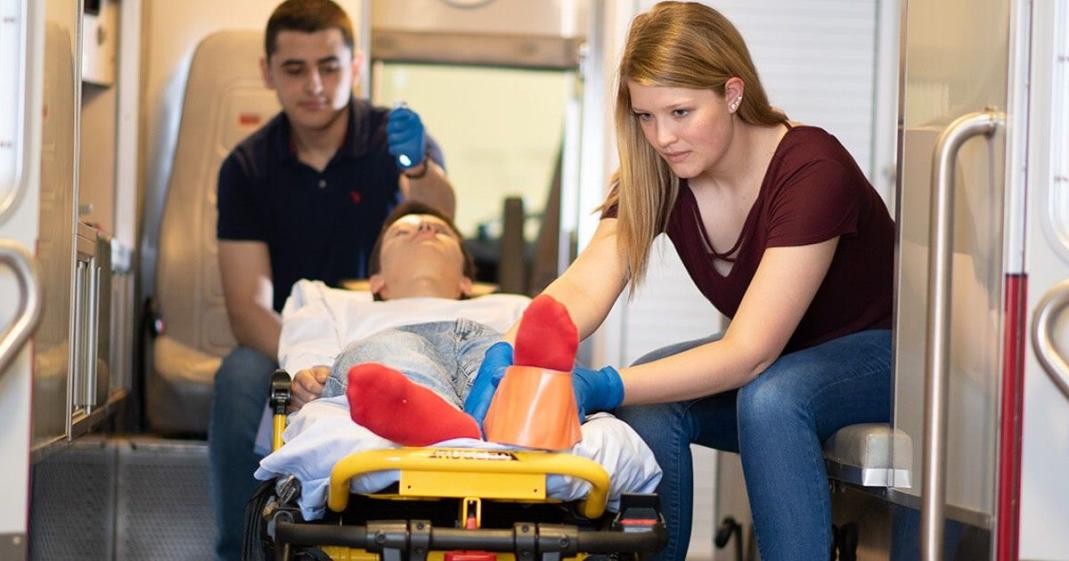How Can AI Help Paramedics Improve Communication with Patients and Their Families?
In the fast-paced and often chaotic world of emergency medical services, effective communication between paramedics and patients and their families is paramount. However, language barriers, time constraints, and emotional distress can pose significant challenges to clear and empathetic communication.

Artificial intelligence (AI) is emerging as a powerful tool that can help paramedics overcome these challenges and improve communication with patients and their families. AI-powered technologies offer a range of solutions that can enhance language translation, provide real-time transcription, analyze sentiment, and personalize communication, ultimately leading to better patient care and satisfaction.
I. How AI Can Enhance Communication
Language Translation:
- AI-powered language translation tools can break down language barriers, enabling paramedics to communicate with patients and families who speak different languages.
- Examples of successful implementations include the use of AI-powered translation devices in ambulances and emergency departments, which have been shown to improve communication and patient satisfaction.
Real-Time Transcription:
- AI-enabled transcription software can transcribe conversations in real time, providing paramedics with a written record of patient interactions.
- This can be particularly beneficial in situations where accurate documentation is crucial, such as when obtaining patient history or providing instructions for treatment.
Sentiment Analysis:
- AI algorithms can analyze the sentiment of patients and families, detecting emotions such as distress, anxiety, or dissatisfaction.
- This early detection can help paramedics address concerns promptly, provide emotional support, and tailor their communication to the patient's needs.
Personalized Communication:
- AI can help paramedics tailor their communication to individual patients based on their medical history, preferences, and cultural background.
- This personalized approach can improve patient engagement, satisfaction, and adherence to treatment plans.
II. Case Studies And Success Stories
Paramedic Services Using AI for Communication:
- Several paramedic services around the world have successfully implemented AI-powered communication tools.
- For example, a study in the United Kingdom found that the use of AI-powered language translation devices in ambulances reduced communication errors and improved patient satisfaction.
Patient and Family Testimonials:
- Patients and families who have benefited from AI-enhanced communication have shared positive experiences.
- Many have expressed gratitude for the ability to communicate with paramedics in their native language and for the improved understanding and empathy they have received.
III. Ethical Considerations
Data Privacy and Security:
- The use of AI in healthcare raises concerns about data privacy and security.
- It is essential to implement robust measures to protect patient data and ensure compliance with relevant regulations.
Transparency and Accountability:
- Transparency in AI decision-making is crucial to ensure that paramedics and patients understand how AI is being used and the rationale behind its recommendations.
- Establishing accountability mechanisms is also important to address potential biases or errors in AI systems.
Human-AI Collaboration:
- While AI can enhance communication, it is essential to maintain the human touch in healthcare.
- Paramedics should view AI as a tool that complements their expertise and enables them to provide better care to patients.
IV. Future Directions And Challenges
Ongoing Research and Development:
- Research and development efforts are ongoing to explore new AI applications for communication in healthcare.
- Areas of focus include natural language processing, machine learning, and the integration of AI with other technologies.
Integration with Other Technologies:
- AI can be integrated with other healthcare technologies, such as electronic health records (EHRs) and telemedicine platforms.
- This integration can create a comprehensive communication system that enhances patient care and streamlines communication between paramedics, patients, and families.
Long-Term Impact on Paramedicine:
- AI has the potential to revolutionize paramedic communication, making it more efficient, effective, and patient-centered.
- In the long term, AI could play a significant role in shaping the future of emergency medical services.
V. Summary Of Key Points
- AI can enhance communication between paramedics and patients and their families by breaking down language barriers, providing real-time transcription, analyzing sentiment, and personalizing communication.
- Case studies and success stories demonstrate the positive impact of AI on communication outcomes and patient satisfaction.
- Ethical considerations, such as data privacy and security, transparency, and accountability, must be addressed to ensure responsible and ethical use of AI in healthcare.
- Ongoing research and development efforts are exploring new AI applications and integrating AI with other technologies to create a comprehensive communication system.
- AI has the potential to revolutionize paramedic communication and improve patient care in the long term.
Call To Action
As AI continues to advance, paramedics and healthcare providers should embrace AI as a tool for improving communication with patients and their families. By leveraging AI's capabilities, paramedics can provide more effective, efficient, and patient-centered care, ultimately leading to better patient outcomes and satisfaction.
YesNo

Leave a Reply